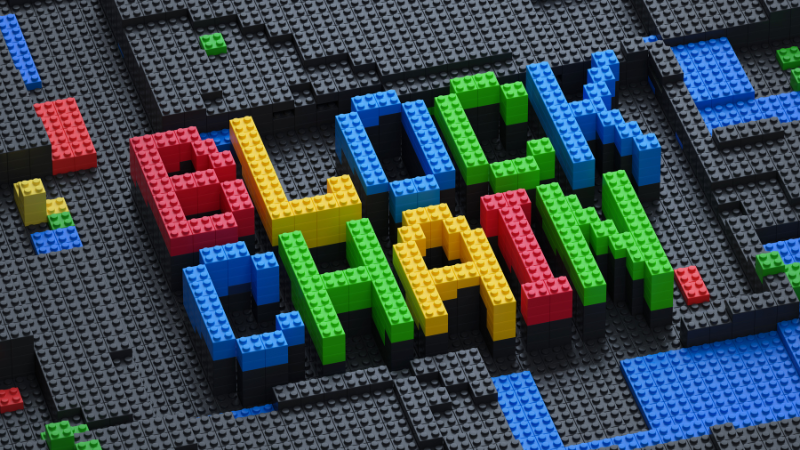The Pros and Cons of Decentralized Gaming
In this article, we cover the pros and cons of decentralized gaming, including how it affects ownership, fairness, and security while also addressing potential issues and risks. Whether you’re a gamer or new to blockchain, understanding these points will help you better understand decentralized gaming.
| Feature | Pros | Cons |
| Ownership | True Ownership of Assets | Complex for New Users |
| Transparency | Transparency and Fairness | Scalability Issues |
| Security | Security and Immutability | Regulatory Uncertainty |
| Interoperability | Interoperability | Environmental Concerns |
| Governance | Community Governance | Volatility of Assets |
Table of content
Decentralized Gaming Pros
True Ownership and Control
In decentralized gaming, players own their in-game assets as NFTs (non-fungible tokens). For instance, in games like Axie Infinity, you can breed, buy, and sell your creatures as NFTs. Because of this, your virtual pets or items have real value and can be traded or sold, giving you control over your digital inventory.
Transparency and Fair Play
Blockchain technology records all game rules and transactions in an immutable ledger. For example, the game Illuvium uses smart contracts to ensure that every transaction and game rule is transparent and verifiable. This transparency helps build trust by allowing players to see how decisions are made and ensuring that no one has an unfair advantage.
More Security
Blockchain's secure architecture protects game data from tampering. Take Decentraland, a virtual world where users own virtual real estate. Once data, such as land ownership, is recorded on the blockchain, it cannot be altered or deleted, reducing the risk of fraud and ensuring the integrity of property ownership.
Cross-Game Compatibility
Assets can be used across various games based on the same blockchain standards. For example, The Sandbox allows players to use their NFTs, like avatars or items, in multiple games within its ecosystem. This means your virtual gear can have value across different gaming worlds, enhancing your overall experience.
Community Governance
In decentralized games, players can influence game development through governance tokens. Star Atlas is an example of a game where players can vote on game updates and changes. This democratic approach ensures that the game evolves based on the community’s wishes, building a more engaged and invested player base.
Decentralized Gaming Cons
Complexity for New Users
Blockchain technology can be complex for newcomers. For example, understanding how to manage and store NFTs or use cryptocurrency for transactions might overwhelm players unfamiliar with these concepts.
Scalability Issues
Blockchain networks can struggle with high transaction volumes. During peak times, games like CryptoKitties have experienced slow processing and high fees due to the Ethereum network’s congestion. This can affect gameplay and cause delays, which can be frustrating for players.
Regulatory Uncertainty
The legal framework for blockchain gaming is still evolving. For instance, recent regulatory discussions in various countries have raised questions about the legality and taxation of virtual assets. This uncertainty can create challenges for developers and players, as rules and regulations are not yet fully established.
Environmental Concerns
Some blockchain systems, especially those using proof-of-work, consume large amounts of energy. Bitcoin mining, for instance, has been criticized for its high energy consumption. This raises sustainability concerns about the environmental impact of blockchain-based gaming platforms.
Asset Volatility
The value of NFTs and in-game assets can be highly volatile. For example, prices of rare items in games like The World of Women can fluctuate dramatically. This volatility brings financial risks for players who invest heavily, as the worth of their assets might change unpredictably, potentially leading to losses.
Common Elements of Decentralized Gaming
The main elements of these games are DLT, NFTs, DAOs, and Fungible tokens.
Distributed Ledger Technology (DLT)
DLT is the foundational technology behind decentralized gaming. It involves a decentralized database that is maintained across multiple nodes (computers) in a network. Each node has a copy of the ledger, which records all transactions and changes.
This technology ensures transparency, security, and immutability, meaning it cannot be altered once data is recorded. In gaming, DLT ensures that all in-game transactions, ownership details, and game rules are transparent and verifiable by anyone, reducing the risk of fraud and manipulation.
Non-Fungible And Fungible Tokens
Non-Fungible Tokens (NFTs)
NFTs are unique digital assets representing ownership of specific game items or properties. These could be characters, items, skins, or real estate within a virtual world. Each NFT is distinct and cannot be exchanged on a one-to-one basis with another NFT because of its unique properties and value.
Fungible Tokens
These are interchangeable and identical to each other, much like traditional currency. In gaming, fungible tokens can represent in-game currencies, resources, or points that can be traded or exchanged without losing value or uniqueness.
Decentralized Autonomous Organizations (DAOs)
DAOs are organizations run by code and governed by the community through smart contracts on the blockchain. In decentralized gaming, DAOs enable a democratic approach to game management and development. Players holding governance tokens can vote on key decisions, such as game updates, features, and rules.
This system empowers the community to directly impact the game's evolution, ensuring that it aligns with the players' interests and preferences. DAOs foster a sense of ownership and involvement among players, making the game more community-driven and responsive to its user base.
Final Thoughts on Decentralized Gaming Pros & Cons
While decentralized gaming offers innovative features and control, it’s important to consider potential challenges before starting.
Blockchain gaming brings exciting benefits like true ownership of in-game assets, transaction transparency, and more security through blockchain technology. Players can trade, use, and influence game development with their assets and governance tokens.
However, it also has downsides. The technology can be complex for new users, and issues like slow transactions and high fees can affect gameplay. Additionally, the evolving legal landscape and environmental impact are concerns. Asset values can be volatile, leading to financial risks.
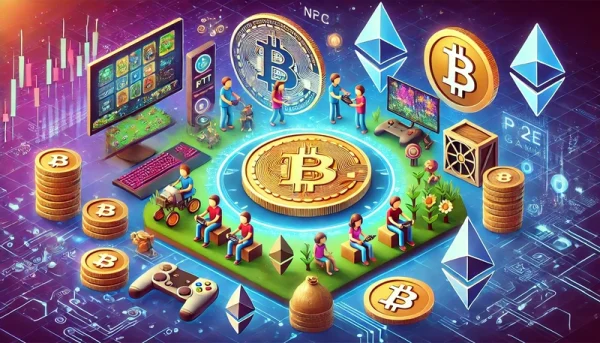
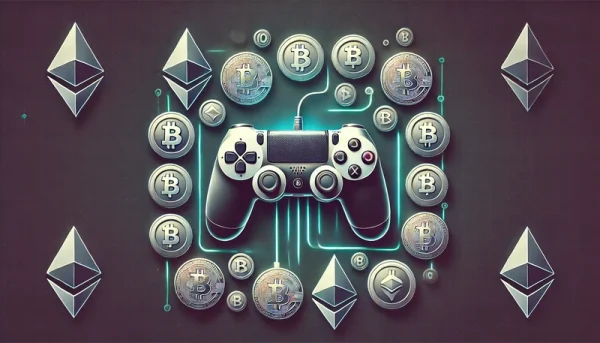
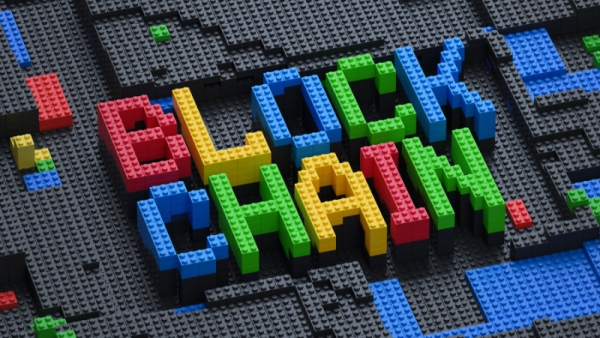
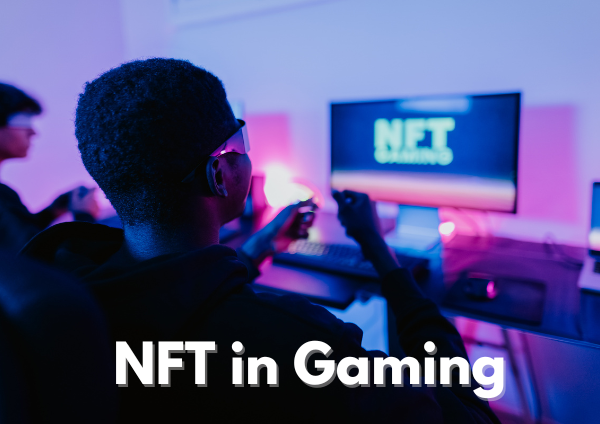
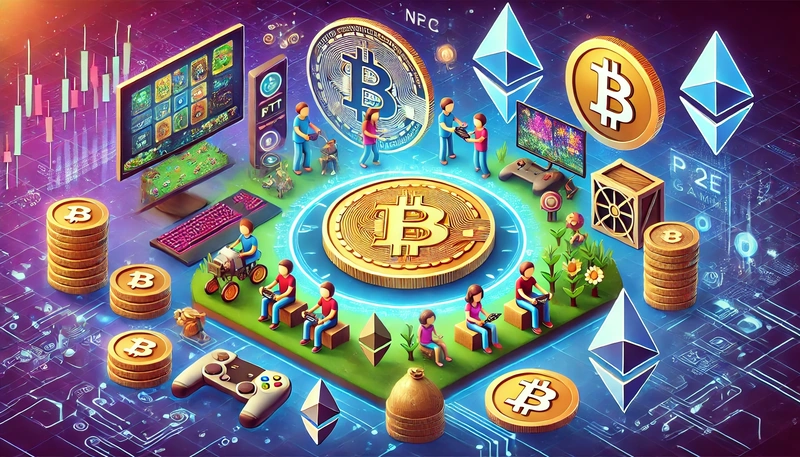
![Top 10 Crypto Games To Play in [year]](https://betoncrypto.io/app/uploads/2024/11/image1-2.webp)
